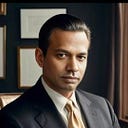Russia Runs Out: Loses 80k Soldiers. Recruits 60–70k.
Will Kim Jong Un Save the Russian state
Everything seems to be unraveling in Russia simultaneously. The ruble has breached the 100 mark, corporate bankruptcies have reached 20%, and inflation has surged into double digits. Putin’s national savings fund has dwindled to under $50 billion, and the global drop in gold prices is only worsening the situation.
Two things, however, have skyrocketed this year: daily Russian casualties in Ukraine and alcohol sales inside Russia. Between January and October 2024, Russians gulped 184.2 million decaliters of alcohol — a volume that feels like they’ve drained a small reservoir to drown their sorrows.
This would be an opportune moment for Western media to step up and shed light on what’s really happening inside Russia. Investigative journalism once thrived against all odds, but now it seems there’s no appetite for doing the hard work.
Thankfully, the tireless efforts of the men and women at the Institute for the Study of War (ISW) allow us to track developments within Russia, make informed assumptions, and draw certain conclusions.
Putin’s strategy to achieve something decisive before the U.S. presidential transition on January 20th is backfiring spectacularly. According to ISW, in September and October alone, Russia lost approximately 80,000 troops in Ukraine while managing to recruit only 60,000 to 70,000 during the same period.
80k-70k = 10k
Remember when Putin brought in 12,000 troops from North Korea? He likely assessed the shortfall in his ranks, rushed to Kim Jong Un, and secured reinforcements to cover his frontline. Putin has long been heavily reliant on maintaining a consistent troop replacement rate. For a significant period, he managed a precarious 1-to-1 ratio: for every soldier lost in the field, one was recruited within Russia. However, if this replacement rate falters, the frontline will become unstable and, at some point, collapse.
With the economy unmistakably signaling that it’s on the verge of imploding, Putin is in a desperate position. He needs to push Ukrainian forces out of critical territories like Kursk cling to hope, and pray that Elon Musk somehow convinces Donald Trump to offer him a grand ceasefire deal.
But getting from now to that point is fraught with uncertainty. The path ahead is so riddled with risks and unknowns that Putin is becoming increasingly reliant on Kim Jong Un to sustain his war effort. He may have no choice but to request 100,000 to 200,000 additional troops from North Korea. Without this, the frontline may not hold — unless, of course, Putin shifts to a total defense strategy.
Yet transitioning to a defensive posture isn’t an option for him. The crumbling economy compels him to stay on the offensive to leverage any potential ceasefire negotiations. It’s the ultimate catch-22: he cannot defend without breaking his economy, and he cannot attack without depleting his forces further.
Putin needs Kim Jong Un’s support — there’s no way around it. The problem for Putin is that his financial resources are nearly exhausted. He has little to offer in return, so a barter deal seems inevitable: North Korean troops in exchange for sensitive technology or possibly even advanced weaponry.
This poses a grave danger to South Korea. When such an exchange happens, even after Russia’s potential collapse, Kim Jong Un will emerge significantly more powerful than he is today.
Frankly, I no longer care what President Biden does or doesn’t do. The real concern is the growing national security threat right in front of South Korea. The best course of action for South Korea is to act decisively — send experts, weapons, and leverage their technological and intelligence capabilities to support Ukraine in every way possible.
They need to act quickly. A calibrated, measured response isn’t suitable under the current circumstances. South Korea must respond before Kim Jong Un deploys 100,000 troops, not after. Any escalation management strategy for a non-aggressor should operate on a “two-for-one” principle: for every first strike, the response must be doubly strong.
- South Korea should publicly address the deployment of North Korean troops. Secrecy in this situation is a mistake.
- It’s crucial to demonstrate strength and resolve openly.
- South Korea must announce its commitment to supporting Ukraine with a specified, steady supply of artillery shells and other equipment.
The time for deliberation in Seoul is over. Action is needed now. South Korea must step forward boldly — this is a defining moment, and hesitation could prove costly. Zelensky and his team should travel to Seoul.
